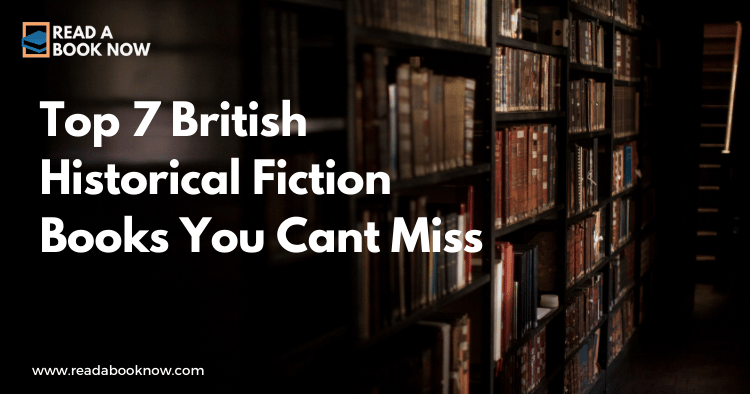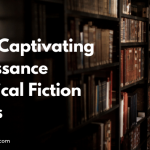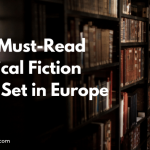Table of Contents
- Introduction
- 1. Wolf Hall by Hilary Mantel
- 2. The Other Boleyn Girl by Philippa Gregory
- 3. The Pillars of the Earth by Ken Follett
- 4. Atonement by Ian McEwan
- 5. The Nightingale by Kristin Hannah
- 6. The Book Thief by Markus Zusak
- 7. The Shadow of the Wind by Carlos Ruiz Zafón
- Conclusion
- FAQs
Introduction
British history is rich with events, personalities, and intrigue, making it a treasure trove for writers and readers alike. Historical fiction allows us to step back in time, providing a lens through which we can explore the past’s complexities and nuances.
“Historical fiction is not just about the past; it’s a bridge to understanding our present.”
In this article, we’ll dive into the top seven British historical fiction books that you simply can’t miss. Whether you’re a seasoned reader or new to the genre, these books promise to transport you to different eras, bringing history to life in captivating ways.
1. Wolf Hall by Hilary Mantel
Overview:
“Wolf Hall” is the first book in Hilary Mantel’s Thomas Cromwell trilogy, set during the tumultuous reign of Henry VIII. The novel intricately weaves the political and personal complexities surrounding Cromwell, a man who rises from humble beginnings to become one of the most powerful figures in the Tudor court.
Why You Should Read It:
Mantel’s prose is both lyrical and precise, painting vivid portraits of historical figures and settings. The book offers a unique perspective on the often-misunderstood Cromwell, showcasing his intelligence and ambition. This novel won the Man Booker Prize in 2009, solidifying its place in modern British literature.
Learn more about the book here.
2. The Other Boleyn Girl by Philippa Gregory
Overview:
Philippa Gregory’s “The Other Boleyn Girl” tells the story of Mary Boleyn, sister to the infamous Anne Boleyn, as she navigates the dangerous waters of the Tudor court. This novel provides a fresh perspective on the events that led to Anne’s rise and fall, as seen through the eyes of the oft-forgotten Mary.
Why You Should Read It:
Gregory’s ability to blend fact with fiction makes this book a compelling read. The emotional depth she brings to the characters allows readers to empathize with Mary’s struggles for love and power in a patriarchal society.
“Behind every great woman is another woman who was forgotten.”
This novel has also been adapted into a film, broadening its reach to a wider audience.
Discover more about Philippa Gregory’s work here.
3. The Pillars of the Earth by Ken Follett
Overview:
Set in the 12th century, “The Pillars of the Earth” follows the construction of a cathedral in the fictional town of Kingsbridge. Follett expertly weaves together the lives of several characters, including builders, nobility, and clergy, against the backdrop of political turmoil and social change.
Why You Should Read It:
Follett’s meticulous research brings the medieval period to life, immersing readers in the era’s challenges and triumphs. The book’s intricate plot and well-developed characters create a rich tapestry that keeps readers engaged from start to finish.
“In the world of ambition and power, every brick tells a story.”
It’s a must-read for anyone interested in medieval history and architecture.
Find out more about Ken Follett’s novels here.
4. Atonement by Ian McEwan
Overview:
Though it spans several decades, “Atonement” begins in the 1930s and culminates during World War II. The story revolves around Briony Tallis, a young girl whose misunderstanding leads to a tragic event that alters the lives of her sister Cecilia and her lover Robbie.
Why You Should Read It:
McEwan’s exploration of themes such as guilt, love, and the consequences of our actions is profound. The narrative moves fluidly between different perspectives and time periods, showcasing McEwan’s skill in character development and emotional depth.
“The act of writing is a form of redemption.”
This novel has received critical acclaim and was adapted into an award-winning film.
Explore more about Ian McEwan’s works here.
5. The Nightingale by Kristin Hannah
Overview:
Set in France during World War II, “The Nightingale” chronicles the lives of two sisters, Vianne and Isabelle, as they navigate the horrors of war and the German occupation. Their paths diverge as they each find unique ways to resist and survive.
Why You Should Read It:
While this novel is primarily set in France, it resonates with the broader themes of courage and resilience familiar in British historical narratives. Hannah’s poignant storytelling and well-drawn characters resonate deeply, making it a moving exploration of the female experience during wartime.
“In the darkest of times, the human spirit can shine the brightest.”
Find out more about Kristin Hannah’s novels here.
6. The Book Thief by Markus Zusak
Overview:
Set in Nazi Germany, “The Book Thief” is narrated by Death and follows a young girl named Liesel Meminger. As she navigates the harsh realities of war, she finds solace in stealing books and sharing them with others, including a Jewish man hiding in her foster home.
Why You Should Read It:
Zusak’s unique narrative style and the poignant themes of love, loss, and the power of words make this book a standout. Its exploration of humanity amidst the horrors of war resonates with readers, providing a profound reflection on the importance of storytelling.
“Words are a source of power; they can change the world.”
Discover more about Markus Zusak’s works here.
7. The Shadow of the Wind by Carlos Ruiz Zafón
Overview:
Set in post-war Barcelona, this novel follows a young boy named Daniel who discovers a mysterious book by an obscure author. As he seeks to uncover the author’s story, he finds himself entangled in a web of intrigue, passion, and tragedy.
Why You Should Read It:
While not strictly British, Zafón’s work resonates with readers globally. The novel is a love letter to literature itself, blending elements of mystery and historical fiction. Its hauntingly beautiful prose and rich atmospheric setting make it a captivating read for anyone who cherishes books and their impact on our lives.
“Books are mirrors; they reflect our deepest desires and fears.”
Learn more about the book here.
Conclusion
These seven British historical fiction books offer a fascinating glimpse into different eras, showcasing the strength of storytelling in bringing history to life. Whether you’re interested in the Tudor court, World War II, or medieval architecture, there’s something here for every reader.
“Reading historical fiction is like taking a journey through time; it allows us to walk in the shoes of those who came before us.”
These novels not only entertain but also educate, prompting us to reflect on the past and its relevance to our lives today.
Also look for classic literature that has shaped the genre, such as the works highlighted in our articles on Top 10 Must-Read 17th Century Classics for Book Lovers and 10 Timeless British Classics Everyone Should Read.
FAQs
1. What is historical fiction?
Historical fiction is a literary genre where the story is set in a specific historical period. The narrative often incorporates real events, figures, and places, blending fact with imagination to create an immersive experience.
2. Why should I read historical fiction?
Historical fiction allows readers to explore different cultures, eras, and perspectives, providing insight into human experiences throughout time. It can make learning about history engaging and relatable.
3. Are these books suitable for all ages?




